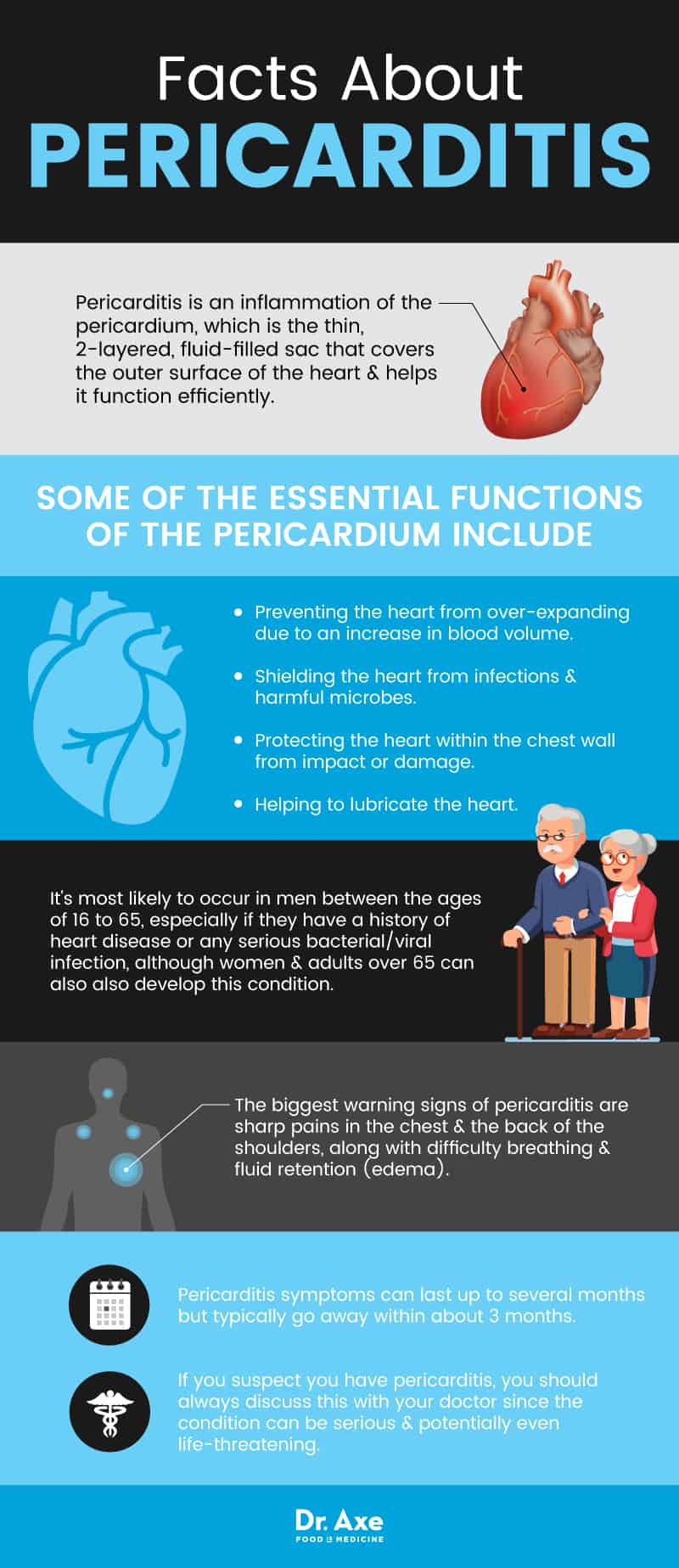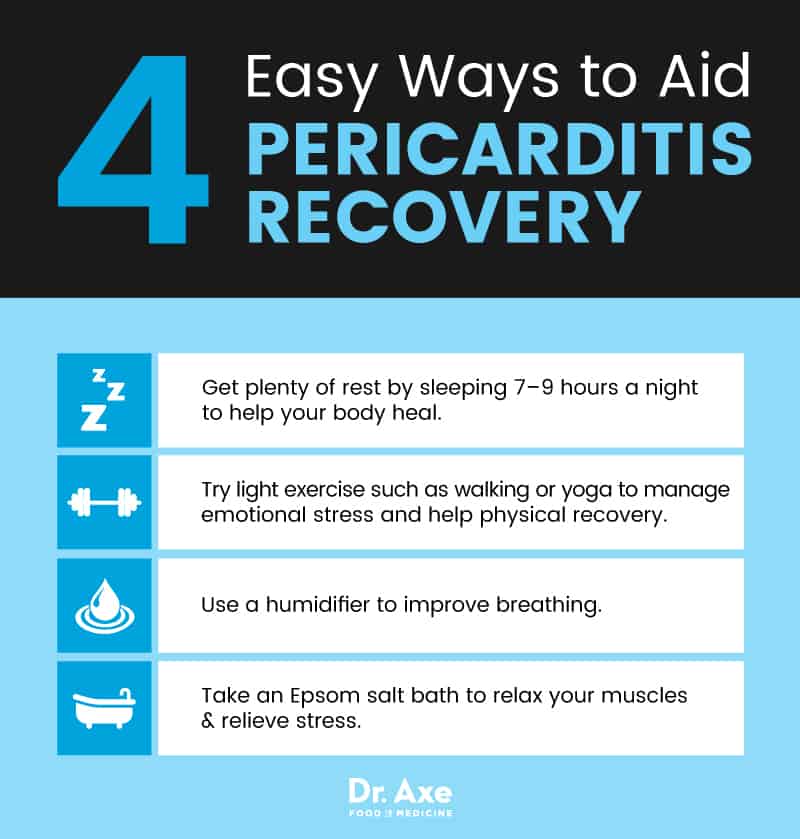This Dr. Axe content is medically reviewed or fact checked to ensure factually accurate information.
With strict editorial sourcing guidelines, we only link to academic research institutions, reputable media sites and, when research is available, medically peer-reviewed studies. Note that the numbers in parentheses (1, 2, etc.) are clickable links to these studies.
The information in our articles is NOT intended to replace a one-on-one relationship with a qualified health care professional and is not intended as medical advice.
This article is based on scientific evidence, written by experts and fact checked by our trained editorial staff. Note that the numbers in parentheses (1, 2, etc.) are clickable links to medically peer-reviewed studies.
Our team includes licensed nutritionists and dietitians, certified health education specialists, as well as certified strength and conditioning specialists, personal trainers and corrective exercise specialists. Our team aims to be not only thorough with its research, but also objective and unbiased.
The information in our articles is NOT intended to replace a one-on-one relationship with a qualified health care professional and is not intended as medical advice.
Pericarditis (+ 6 Natural Ways to Help Recovery)
March 26, 2018

Experiencing chest pains can be a scary feeling — especially since it’s one of the most common symptoms associated with having a heart attack. But there’s another heart condition called pericarditis that can cause ongoing chest pains, which are sometimes sharp and can make it difficult to breathe. Pericarditis (or inflammation of the sac that holds the heart) is found in roughly 5 percent of all patients admitted to the emergency department for chest pain unrelated to a heart attack. (1)
Why is pericarditis dangerous? Because it can cause a buildup of fluid around the heart that stops it from working properly.
Who’s at the greatest risk of developing pericarditis? It’s most likely to occur in men between the ages of 16 to 65, especially if they have a history of heart disease or any serious bacterial/viral infection, although women and adults over 65 can also also develop this condition. The biggest warning signs of pericarditis are sharp pains in the chest and the back of the shoulders, along with difficulty breathing and fluid retention (edema).
If you suspect you have pericarditis, you should always discuss this with your doctor since the condition can be serious and potentially even life-threatening. Some of the ways you can manage pericarditis symptoms, which you’ll learn much more about below, include: treating infections, viruses and autoimmune diseases; resolving nutrient deficiencies; and eating an anti-inflammatory diet.
What Is Pericarditis?
The definition of pericarditis is an inflammation of the pericardium, which is the thin, two-layered, fluid-filled sac that covers the outer surface of the heart and helps it function efficiently. (2) Like other types of inflammation, pericarditis is caused by the membrane around the heart becoming red, swollen with fluid, irritated and potentially damaged.
Some of the essential functions of the pericardium include:
- Preventing the heart from over-expanding due to an increase in blood volume.
- Shielding the heart from infections and harmful microbes.
- Protecting the heart within the chest wall from impact or damage.
- Helping to lubricate the heart.
How serious is pericarditis? It depends on the type of pericarditis that you have and how severe the condition is. If the pericardium is very inflamed and the heart becomes constricted as a result, then there’s a higher chance that severe symptoms will develop. Chronic pericarditis that can last for many months or even years is a serious condition because it affects blood flow throughout the body.
Signs and Symptoms
The most common symptoms of pericarditis include: (3)
- Chest pain, which is sometimes painful, sharp and “stabbing.” Pericarditis pain is due to friction caused when the heart rubs against the inflamed pericardium.
- Pain when coughing, swallowing, lying down or breathing heavily (such as when exercising). Usually pain will decrease when you sit up and lean forward since this puts less pressure on the pericardium.
- Trouble breathing, including when sleeping and lying down. This can increase fatigue and lethargy.
- A dry cough.
- Swelling in your feet, legs and ankles.
- Sometimes, increased anxiety.
- Some people hear a rubbing or creaking sound coming from their chest/lungs that is caused by rubbing of the inflamed lining of the pericardium. This is mostly likely to be noticed when you are leaning forward and breathing heavily.
A severe type of pericarditis is called constrictive pericarditis, which occurs when the pericardium hardens and thickens, causing constriction of the heart muscle. When the heart becomes compressed it interferes with normal blood flow and can cause blood to back up into places it shouldn’t be — such as the lungs, abdomen and legs. Signs and symptoms of constrictive pericarditis include:
- Abnormal heart rhythm.
- Swelling in the legs and abdomen, which is sometimes severe.
- Shortness of breath.
- Water retention.
- Heart palpitations.
How long does pericarditis last? Usually it develops suddenly and may worsen quickly. Pericarditis symptoms can last up to several months but typically go away within about three months. Some people will deal with symptoms for years (chronic pericarditis) and experience flare-ups in symptoms from time to time as the inflammation gets better, but then worsens again. According to the Cleveland Clinic, “About 15-30% of patients with pericarditis have repeat episodes of pericarditis that come and go for many years.” (4)
Is pericarditis life threatening? It can be if pericardial effusion and cardiac tamponade occur. (5)
- Pericardial effusion refers to fluid buildup in the space between the pericardium and heart.
- This may lead to cardiac tamponade, which is when there’s so much accumulated fluid that it compresses the heart, which is life threatening and requires immediate drainage of the fluid.

Causes and Risk Factors
What is the main cause of pericarditis? There isn’t just one cause, since many different health conditions can lead to pericarditis (inflammation around the heart) developing.
There are many different types of pericarditis, all of which have different underlying causes and symptoms. The main types of pericarditis include: (6)
- Acute pericarditis — Develops suddenly and usually lasts several months.
- Chronic pericarditis — Lasts for three months or longer.
- Cardiac tamponade — A severe compression of the heart that is considered a medical emergency.
- Constrictive pericarditis — Causes the pericardium to harden, stiffen and develop scar tissue.
- Infectious pericarditis — Caused by a viral, bacterial, fungal or parasitic infection.
- Idiopathic pericarditis — Does not have a known cause.
- Traumatic pericarditis — Due to an injury to the chest, impact, trauma or accident.
- Uremic pericarditis— Due to kidney failure.
In many cases it’s not known exactly what causes pericarditis, which is referred to as idiopathic pericarditis. In developed countries, idiopathic pericarditis is responsible for 80 percent to 90 percent of all cases. (7) Some people develop pericarditis due to having an autoimmune disease, which can cause the body to “attack” its own tissue, causing inflammation around the heart and many other symptoms like joint pain, weakness and so on.
Some risk factors and underlying causes of pericarditis can include:
- Having had a heart attack, recent heart surgery such as bypass surgery (this is called postpericardiotomy syndrome), radiation therapy, cardiac catheterization or radiofrequency ablation (RFA).
- Viral infections, most of which affect the gastrointestinal system.
- Bacterial infections, including tuberculosis (TB). Tuberculosis is a major cause of pericarditis in developing countries but is responsible for less than 5 percent of cases in developed countries.
- Fungal infections or those caused by a parasite.
- Certain autoimmune diseases, such as lupus, rheumatoid arthritis and scleroderma. Having ankylosing spondylitis is another risk factor since this type of arthritis causes abnormal fusions in the spine, inflammation and pain in the upper body and pelvis.
- Damage or impact to the chest, such as after a car accident.
- Health problems such as kidney failure or tumors.
- Certain genetic diseases such as familial Mediterranean fever (FMF).
- In rare cases, taking medications that suppress the immune system, such as if treating a health problem like cancer or HIV.
Related: How to Maintain Normal Troponin Levels
Conventional Treatments
Your doctor can determine a pericarditis diagnosis by performing a physical exam, taking tests and discussing your symptoms, medical history and risk factors.
You might need to have some of the following tests done to determine if and how severely your pericardium is inflamed:
- Chest X-rays
- Electrocardiogram (ECG or EKG) to look for changes in your heart rhythm
- Echocardiogram (echo) to check for fluid or pericardial effusion
- Cardiac MRI to check for pericardial inflammation
- CT scan to check for abnormalities around the heart
- Cardiac catheterization to determine if the heart is constricted
- Blood tests to determine the causes of inflammation (such as high C reactive protein levels).
One a diagnosis of pericarditis is made, conventional treatments typically include:
- Pain-reducing medications, which can include prescription strength pain-killers or over-the-counter drugs such as ibuprofen, aspirin or other nonsteroidal anti-inflammatory drugs (NSAIDs). Taking medications with an anti-inflammatory analgesic for one to two weeks is “the first-line treatment” for acute pericarditis. (8)
- If an infection is a root cause, antibiotics or antifungal medications.
- An anti-inflammatory drug called colchicine. In the case of chronic or recurrent pericarditis, your doctor may recommend that you take NSAIDs and/or colchicine for several years to help manage the condition. Colchicine has been shown to help reduce recurrences, which tends to occur in about 30 percent of patients who don’t utilize any type of preventive therapy.
- Diuretics to help control fluid retention, swelling and edema.
- Sometimes steroids/corticosteroids such as azathioprine, IV human immunoglobulins or anakinra are used to control inflammation and autoimmune reactions. Some cardiologists believe that corticosteroids use should be limited to patients with NSAID contraindications/intolerance and not used by patients with specific conditions such as autoimmune diseases. (9)
- In severe cases, surgery may need to be performed to protect the heart and drain excess fluid from the pericardium and surrounding area. Pericardiocentesis is a surgery that involves inserting a long, thin catheter to drain the extra fluid. Some people with constrictive pericarditis may need to have part of their pericardium removed (called a pericardiectomy) to prevent further constriction of the heart.
Prevention and Recovery
1. Rest and Reduce Stress
Any type of bodily stress, including intense exercise and physical activity beyond walking and stretching, can be harmful during pericarditis. It’s recommended that you take it easy while you heal, so be sure to get plenty of sleep every night (at least seven to nine hours) and to rest when needed.
Before returning to intense exercise talk to your doctor about whether it’s safe. Exercise can be beneficial once you’ve healed enough since it benefits immune function, circulation and cardiovascular health. (10) While you’re recovering try to manage emotional stress by doing stress-relieving activities including: meditation, breathing exercises, light yoga or stretching, getting massages, journaling, walking outside, praying, art or creative activities, etc.
2. Eat An Anti-Inflammatory Diet
Support your immune system by cutting out processed foods from your diet and eating whole, nutrient-dense foods that provide antioxidants, vitamins and minerals. If you have a health condition such as an autoimmune disease — for example Hashimoto’s, which causes hypothyroidism — eating an anti-inflammatory diet is critical for improving gut health and immune function. Here are steps you can take to reduce inflammation by eating a nutrient-dense diet:
- Eat plenty of raw fruits and vegetables. Include foods high in vitamin C and A like oranges, kale and other leafy greens, kiwi, strawberries, grapefruit, red peppers, green peppers, guava and broccoli.
- Consume bone broth daily, which is another healing food that will supply essential vitamins and minerals.
- Eat probiotic-rich foods because they boost immune function and replenish the healthy bacteria in your gut. Some excellent options include kefir, cultured vegetables (like sauerkraut and kimchi), kombucha, coconut kefir and cultured yogurt.
- Eat high-quality protein such as lean grass-fed beef, pastured eggs, organ meats like liver, and wild-caught salmon
- Consume healthy fats like coconut oil, olive oil, grass-fed butter, ghee, avocado, nuts and seeds.
- Avoid inflammatory foods that can worsen existing health conditions, including processed grains (especially those gaining gluten), conventional dairy products, foods with added sugar and synthetic ingredients, processed meats, fast food and fried foods.
- Eliminate sources of trans-fatty acids in your diet, such as fast food and processed foods. Avoid refined foods like white breads, white rice, pasta and refined sugar. Avoid coffee, alcohol and tobacco products.
- Drink plenty of water throughout the day to help reduce coughs and make it easier to breathe. Try to drink a glass of water about every two to three hours for a total of about eight glasses per day.
3. Fight Viruses and Infections
You can use the following natural remedies to protect yourself from viruses, bacterial infections and fungal infections — which can make pericarditis worse and even be an underlying cause:
- Use oregano oil either topically or internally, which acts as a natural antibacterial agent without causing harmful side effects. Oregano oil also has the power to help treat viral conditions, reduce inflammation and relieve respiratory symptoms that are caused by allergies.
- Antiviral herbs can help build your body’s defenses against infections and contributing health problems. These include: wormwood, black walnut, oregano essential oil/capsules, garlic, bentonite clay, activated charcoal, and grapefruit seed extracts. Herbs may help treat infections and attack viral pathogens, plus they offer cardiovascular, digestive and anti-inflammatory support during periods of illness.
- Adaptogenic herbs like rhodiola (Rhodiola rosea) and astragalus (Astragalus membranaceus) can be very helpful when it comes to supporting immune health and helping you deal with physical and mental stress or fatigue.
4. Improve Your Ability To Breathe
If you’re experiencing shortness of breath and coughs, use a humidifier in your home, especially when you sleep at night. A humidifier can help to loosen mucus and relieve wheezing and limited air flow. Also be sure to quit smoking if you currently smoke. Smoking is highly inflammatory and increases the risk for many diseases, including heart disease. If you do smoke, talk to your doctor about programs and products that can help you quit. It’s also important to try to avoid secondhand smoke and other lung irritants, such as dust, vapors, fumes and air pollution.
You can use eucalyptus oil, which contains the constituent called cineole, to reduce shortness of breath while improving respiratory function. To help reduce airway inflammation, try making a facial steam bath with eucalyptus oil. Pour a cup of boiling water into a bowl and mixing in 10 drops of the oil. Then place a towel over your head as you lean over the bowl and inhale deeply for five to 10 minutes.
5. Reduce Inflammation With Supplements
Certain supplements might help you to heal and feel better while you recover. These include:
- Hawthorne berry (Crataegus oxyacantha L), sometimes called “the heart herb,” has cardio-protective abilities, including helping to prevent conditions that raise the risk for pericarditis, such as: angina, high blood pressure, hardening of the arteries, irregular heart beat and even congestive heart failure. (11) You can safely take between 160 to 1,800 milligrams per day for a three- to 24-week time period.
- Vitamin C helps to boost your immune system by acting as an antioxidant and fighting free radical damage.
- Omega 3 fatty acids have anti-inflammatory effects and are beneficial for cardiovascular health.
- B vitamins can help give you more energy if you’re feeling fatigued.
- Vitamin D3 helps support the immune system.
- A magnesium supplement can be helpful for relaxing constricted or spasming muscles in your chest. It may also support cardiovascular health and lower feelings of restlessness/anxiety, which can help you get better sleep. (12) Many adults suffer from magnesium deficiency without even knowing it. However, you shouldn’t take magnesium without speaking with your doctor first if you have low blood pressure or kidney disease/kidney failure.
- Probiotics are beneficial for gut health and your immune system.
- N-acetlycysteine helps to decrease the severity and frequency of coughing attacks and improves overall lung function if you have shortness of breath.
6. Try Natural Sleep Aids and Pain-Relievers
If you’re experiencing pain while lying down and have trouble sleeping or relaxing, some of these natural pain-killers may be able to help:
- Peppermint essential oil can be used topically to improve circulation and reduce muscle tension. Lavender oil is useful for promoting relaxation, easing tension and helping you fall asleep. Try this homemade muscle rub recipe to help alleviate sore muscles including tightness in your chest.
- Try taking a magnesium-rich Epsom salt bath to soothe joint pain and muscle soreness.
- Apply warm compresses and heating pads or ice packs to your chest and painful areas, which can be helpful for the temporary relief of aches and inflammation.
- Drink bone broth, which contains minerals in forms that your body can easily absorb. It’s a good source of calcium, magnesium, phosphorus, silicon, sulphur, chondroitin sulfate and glucosamine, which can help to reduce inflammation, arthritis symptoms and joint pain.
- Visit an acupuncturist or chiropractor for help relieving tightness, anxiety and other symptoms stemming from dysfunction of the neuromuscular system.
Precautions
If you experience warning signs of pericarditis — especially sharp pain in your chest, back and shoulders and difficulty breathing — then call your doctor or a cardiologist to schedule an evaluation.
Remember that pericarditis can be deadly if it progresses and is left untreated, so always air on the safe side by having a physical exam performed and talking to your doctor about your risk factors.
Final Thoughts
- Pericarditis is inflammation of the pericardium, which is the thin, two-layered, fluid-filled sac that covers the outer surface of the heart and helps it function efficiently.
- Causes of pericarditis include a history of heart disease, kidney failure, infections, autoimmune responses, or reactions from an injury, surgery or trauma.
- Symptoms of pericarditis include chest pain, trouble breathing, fluid retention, coughing, pain in the shoulders and back, trouble laying down or sleeping, and swelling in the abdomen, legs and feet.






